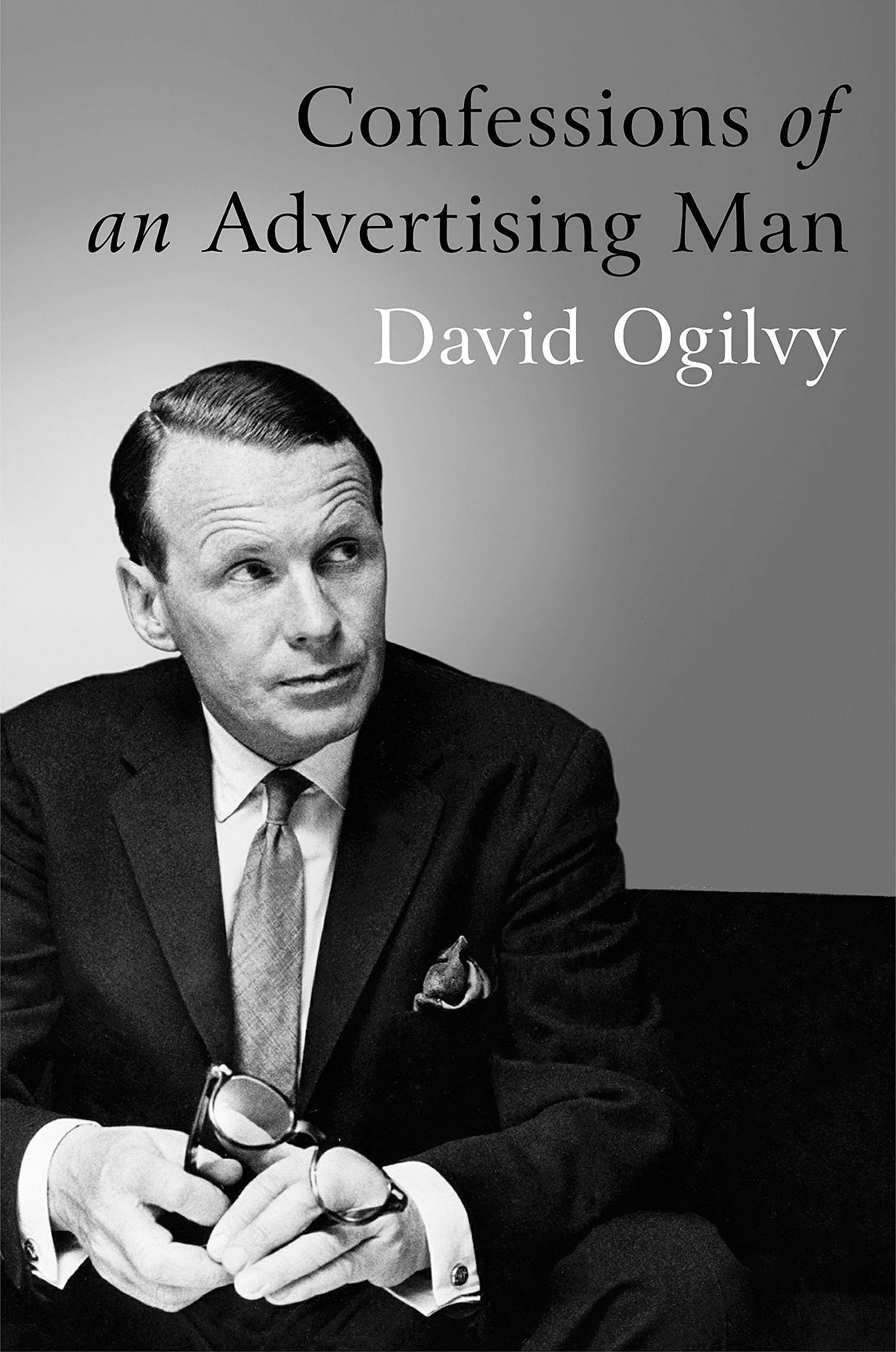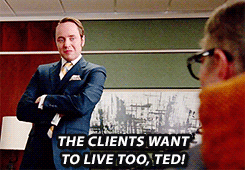📚Book Club - Confessions Of An Advertising Man Part 4
Or... why keeping old clients is (usually) easier than finding new ones.
It’s Book Club - a weekly post and thread about a book that matters. Let’s do this!
On tap: Week 4 of David Ogilvy’s iconic Confessions of an Advertising Man.
HOUSEKEEPING NOTE! Observant readers of this newsletters may notice that book club hasn’t been around recently. But we’re back. It’s been one of those ungainly beasts of a month where we’ve been playing catch-up with client to-do lists, which brings us to… Keeping clients.
Keeping clients is hard. It’s hard if you’re the CEO of a large advertising agency, it’s hard if you’re an individual freelancer, it’s hard for anyone and everyone in-between. It’s hard if you’re an account person at an agency whose job depends on keeping clients happy, it’s hard if your a salesperson who wants relationships to last over years and decades, it’s hard if you’re a creative making sure your company’s clients have something awesome to show off, it’s hard for everyone in-between.
Roughly speaking, here are the rules of Keeping Clients:
Keeping clients is hard.
Finding new clients is harder.
Losing clients has consequences.
Keeping clients happy is art, not science.
Sometimes books show their age in particular sections, and Confessions is no exception. Read the chapter on How to Keep Clients and its age shows. And not in the cultural ways you’d expect from a book written in the 1960s. It’s outdated in technological ways.
Ogilvy was writing in an age before email, before social media and before smartphones. Client meetings still take place in conference rooms (or will, again, soon) but now they’re done in front of Keynote or Prezi instead of an elaborate put-together from the print shop down the street.
But that’s fine. It changes the trajectory of the ball but doesn’t suddenly mean the home run becomes a foul ball. Let’s work down the list.
Keeping clients is hard: As Ogilvy notes, doctors and lawyers don’t typically stay up at night worrying about client turnover. But for advertising, client loss is a fact of life. Agencies and solo professionals lose clients because they’re charging too much, (yes!) charging too little, because they haven’t offered the promised results, because they offered the promised results but the goalposts shifted, because the client had personnel changes and wants to bring in their preferred contacts, because they’re looking for something new, or any of a million other reasons. This is something that’s structurally built into the advertising world and I have a hard time imagining an industry that’s significantly less transactional.
In other words, businesses can lose clients either because they did the wrong thing, or through circumstances completely beyond their control. I know that I’ve personally lost clients because of client budget cuts, because my main contacts there moved to other organizations, and because of corporate politics I had no control over. There’s no point getting angry about those things because it’s simply the way of the world.
Finding new clients is harder: The meat and potatoes of any advertising agency, consultant, or freelancer’s schedule is paying client work. You WANT to spend as much time as possible and allocate as many resources as possible towards paying client work. Otherwise, you’re just doing tax deductible funtime hang outs and not actually running a business.
Furthermore, business development and finding new clients scales infinitely. If you’re running a one-person shop, odds are good you’re spending eight of your 40 hours a week working on business development. If you’re running an agency of 50, you might have to have your five best creatives spend 40 hours each working on a pitch/RFP/whatevers. Unlike a lot of other things, biz dev doesn’t become easier at a larger scale.
I mean… there’s a reason why creative agencies often give steep retainer discounts to clients for long-term engagements. Even if you’re discounting your rates by 20%, 30%, even more… it’s still cheaper to have that worked locked in than to go hunting for it.
Losing clients has consequences: I’ll go straight to Ogilvy here: “I have seen agencies fire a hundred people when they have lost a single account; and some of those poor devils were too old to get another job. This is one reason why agencies have to pay such high salaries; next to the theatre, advertising is probably the least secure of all careers.”
Dude’s right. Any auto repair shop with the turnover levels of an ad agency would be panicking; job stability in the advertising industry is a rare, rare thing. Shifting client relationships plays a big part in that.
Keeping clients happy is art, not science: Here we get to one of the most challenging parts of working with clients in the advertising world. Ogilvy argues—and I’ll wholeheartedly agree—that making clients happy is as much about feelings as it is about an awesome end product.
I’ve personally found that much of working with a vendor isn’t necessarily the deliverable you’ve commissioned; it’s the little things. Do you feel comfortable with their vision? Do you look forward to meeting them? Do they anticipate your concerns before you express them? Do they give you frequent status updates without overwhelming you with minutae? Do you trust them to tell you what needs to be said? Do you trust them to do the work you need?
And an addendum! Ogilvy argues on resigning from working with clients (that is, firing them), in the following circumstances: When the client is a bully, when they are unprofitable for the agency, when it’s impossible to have confidence in the product or service you’re promoting, and when the client becomes more trouble than they’re worth.
I’ve found that to be good advice; I’ve also seen a lot of younger and smaller agencies I’ve consulted for flounder because they were so afraid to turn down work that they worked with clients who were more trouble than they were worth.
In those rare cases, passing on paying hours to find new clients makes sense. Otherwise? Make sure you’re maximizing those paying client hours.
What do you think? Leave a comment below.
About This Newsletter: Neal Ungerleider is a strategic communications consultant working with individuals, agencies and brands. He writes this weekly newsletter about the media communications industrial complex and hopes that you found it of use. Check out his bio, his portfolio, and current projects and interests.
Connect on Twitter or LinkedIn and learn more about at nealungerleider.com. To reach Neal, reply to this email or drop a line in the comments.







